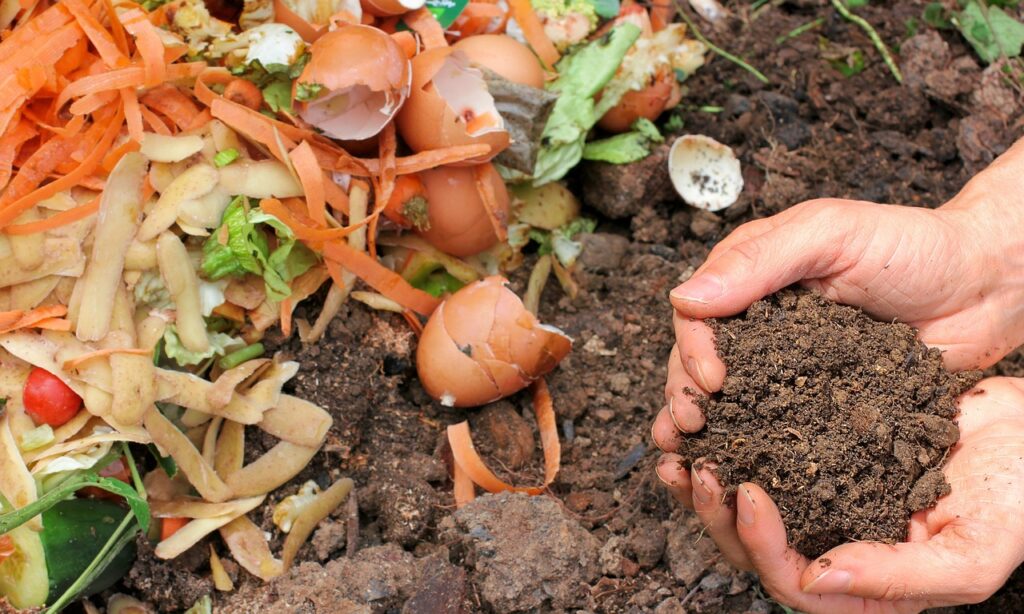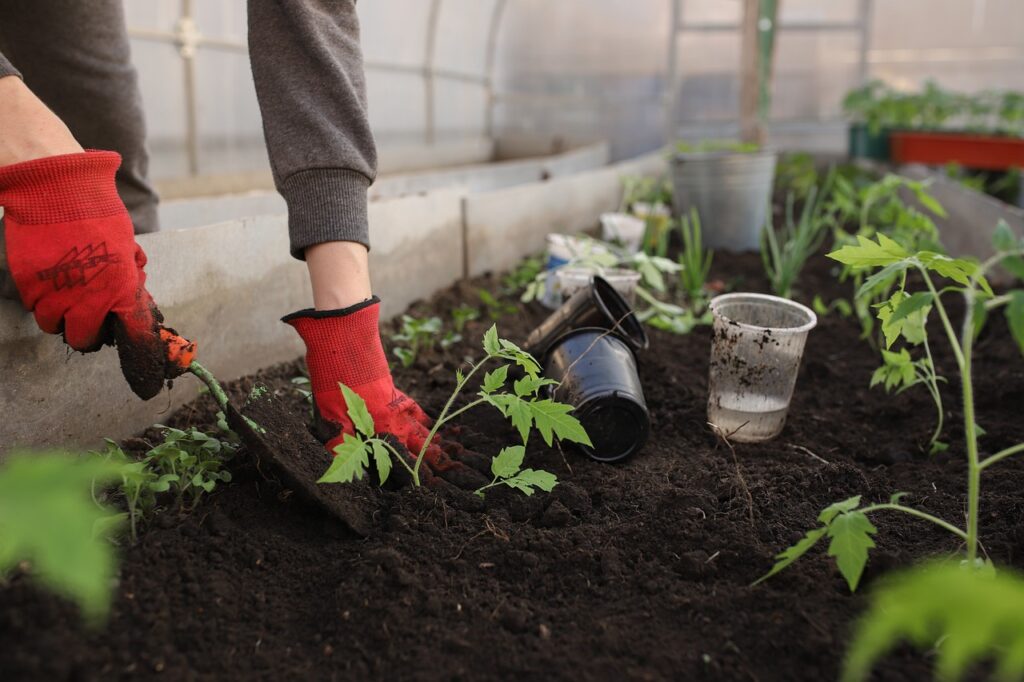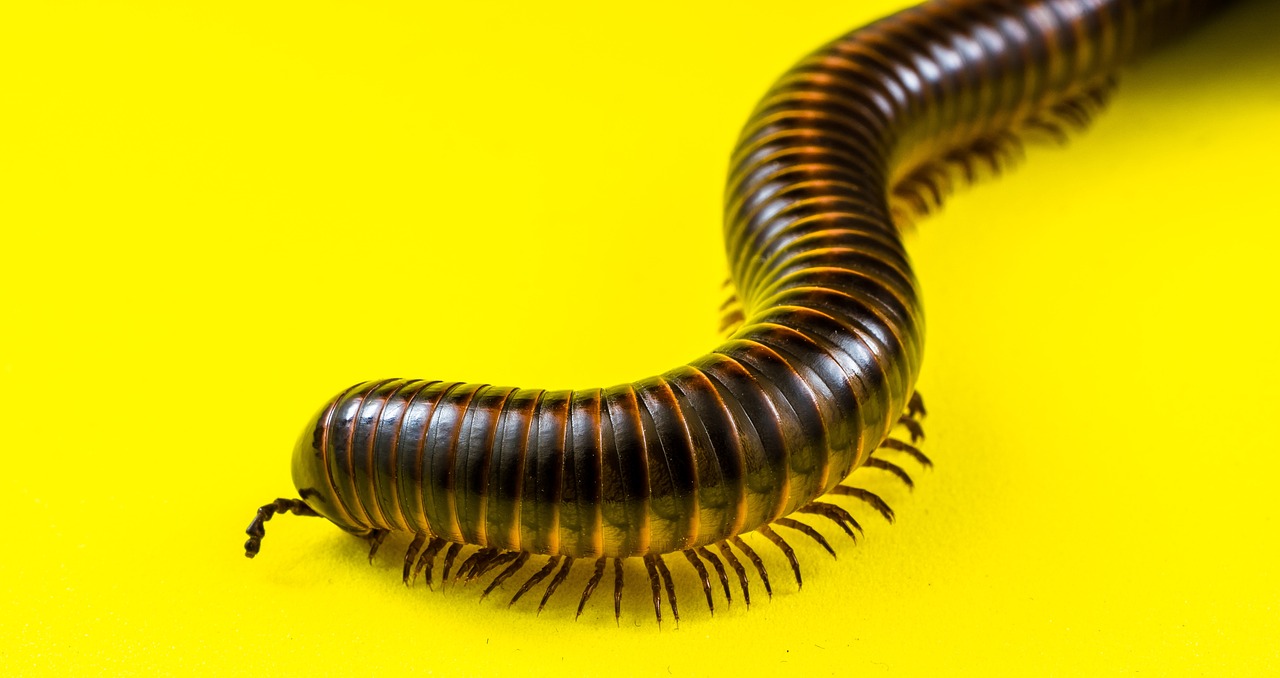Millipedes are arthropods that you may find in your garden — not to be confused with centipedes… Both millipedes and centipedes have segmented bodies with multiple pairs of legs. But centipedes have flatter bodies while millipedes are rounder in shape. Millipedes are considered a minor pest to gardeners and in some respects, they are actually beneficial in a garden. So why do you have millipedes in your garden?
7 reasons why you have millipedes
1. Your garden has a lot of food for millipedes
You have millipedes in your garden because of one main reason — the availability of food, water, and shelter. Unfortunately, your garden provides all in abundance, especially food. Millipedes eat plant material, particularly the ones that are already decaying.
Compost piles, fertilizers, and soil additives are some of the biggest millipede attractors in your garden. And then there are the plants themselves. Millipedes eat plants. Generally, they don’t really cause that much damage on larger plants, as the plants outgrow the damage quickly. But young and small plants are vulnerable.
2. You have rotting fruits and vegetables
If you have a garden, fruits and vegetables are easy to come by. But these attract different kinds of pests, such as fruit flies, squirrels, and of course, millipedes. These garden pests feed more on decaying plant matter, but they are not super picky in their meals. They can eat a variety of fruits and vegetables, such as apples, bananas, carrots, cucumbers, lettuce, melons, peaches, spinach, and tomatoes. Many of these also have juices, providing hydration to millipedes and other animals that may consume them.
This is why it’s important to pick ripe fruits and vegetables and throw away rotting ones. You don’t want to provide food and water to garden pests like millipedes. The fermenting juices of rotting fruits and vegetables are also especially attractive to fruit flies.
3. You have a compost pile
Compost piles have lots of decaying organic materials. Naturally, they will attract animals that feed on such materials, such as flies and millipedes.
Garden millipedes can be incredibly destructive as they consume small and young plants, fruits, and vegetables. But when it comes to compost piles, they are really not that destructive. In fact, they can even be beneficial. Millipedes can help break down the ingredients in your compost pile, making it even richer.
However, this doesn’t mean you can just let them thrive there. They are still garden pests after all.

4. You have a lot of young and small plants
Millipedes are detritivores, meaning they eat dead organisms and waste. Some millipede species are also herbivores that feed on plant matter and a few are carnivores that feed on dead insects, rotting flesh, and common household pests like ants, cockroaches, and spiders.
This is all bad news for your garden, which likely has all these food items for millipedes to enjoy. Young and small plants are particularly vulnerable, simply because they are, well young and small. They simply can’t negate the destruction caused by millipedes, unlike big and mature plants that can easily outgrow the damage.
5. You have numerous potted plants
There are some advantages to having potted plants in your garden. They can make your garden more aesthetically pleasing as you showcase decorative pots. They can also make it easier to move plants around. But they have a clear disadvantage — they attract millipedes to your garden.
The plants themselves are not the only ones attracting millipedes. The pots are also attractors. Remember — millipedes need food, water, and shelter. Pots can serve as a shelter for these garden pests. The undersides of pots are cool, damp, and dark — perfect places for millipedes to hide and stay away from the sun.
6. Your garden has a lot of moisture
Like every other animal in the world, millipedes need water to survive. You can say that they actually need more water compared to others. This is because they will dry out and die if they are not in a humid or moist environment. They need moisture to survive and thrive.
Of course, your garden has a lot of moisture because you consistently water plants and soil. This makes the area the perfect place for millipedes. It doesn’t just have the moist condition for them to be comfortable. It also has the resources to sustain them. They are much like garden slugs in this regard.
7. Your garden has dark and humid areas
Millipedes like dark and humid areas. They like dark areas to stay away from the sun, which can dehydrate and kill them. They like humid areas to keep themselves moisturized. These garden pests even burrow deep within the soil like earthworms just to look for these perfect conditions.
Don’t give them more opportunities. Maintain decaying areas like compost piles and mulched areas like flower beds. Get rid of debris like rotting logs and woodpiles.

Quick tips to get rid of millipedes in your garden
- Get rid of millipede attractors. Your garden will naturally have millipede attractors such as plants. But you can minimize those you don’t really need in your garden, such as clippings, compost piles, leaf litter, and woodpiles. If you don’t want to get rid of them, particularly your composts, you can always just move them away from your garden.
- Reduce moisture and manage decay. You can’t completely avoid moisture. You are going to water your plants at some point. But the key is to water them when millipedes are not active. Millipedes are more active at night to avoid the drying properties of the sun. You can water your plants in the morning. When millipedes become active in the evening, your garden will already be dry.
- Attract millipede predators. In gardening, biological control is the use of natural predators to get rid of pests. It’s not a new concept. For instance, many gardeners attract parasitic wasps to get rid of tomato hornworms. You can attract frogs and toads because they are millipede predators. If you have a pond, attracting these amphibians wouldn’t be too difficult. If you don’t have one, create a shallow and non-moving water source.
Your garden can attract millipedes
Millipedes feed on organic plant matter, usually if it is decaying. They also need a lot of moisture to survive. Unfortunately, your garden provides all these things, and it has a lot of nooks and crannies where millipedes can hide.
To get rid of millipedes, minimize the attractors in your garden. And you can also attract natural millipede predators like frogs and toads.

